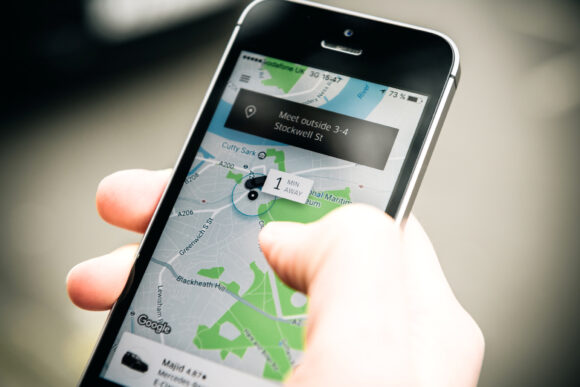Eight years of litigation, multiple court opinions, and two deadlocked trials are enough.
A federal judge in Pennsylvania has put an end to what he says is “futile” litigation over whether Uber Black drivers, who drive luxury cars and charge more than regular Uber drivers, are employees or independent contractors.
Judge Michael Baylson has dismissed the case brought by Uber Black drivers against Uber as being no closer to resolution today than it was in 2016 when it was first filed.
The drivers say Uber misclassifies them as independent contractors rather than employees, which means they lose out on benefits and protections of the federal Fair Labor Standards Act and its Pennsylvania law counterparts. Uber has argued that the drivers are independent contractors, not employees, because they are free to work where and when they want and they can take on other work.
The judge noted that his own court granted summary judgment for Uber in 2018, but in 2020 the Third Circuit Court of Appeals vacated and remanded the case, finding there were a number of material factual disputes that prevented summary judgment. Since then there have been not one but two trials where juries deadlocked on the central question of whether the drivers are employees or independent contractors.
“At its core, this case pits the ability of Uber Black drivers to work ‘when, where, and for how long’ they want against Uber’s control over those drivers while working,” the judge wrote, citing the fact that the drivers have twice attempted to convince a jury the latter outweighs the former, only to have each attempt end up with the jury unable to decide.
He said that providing the plaintiffs with a third “bite of the apple” would be futile and simply a replay of each past attempt.
“A third jury trial would do nothing more than waste precious judicial resources while—in all likelihood—leaving the parties precisely where we began so many years ago,” he concluded.
He said the district court must exercise its authority to “end the infinite loop” the court confronts or there would be no upper bound as to the number of retrials the plaintiffs could get. He added that “no single litigant has the right to continuously monopolize” a district court.
He stressed that the issues in the case are not frivolous and they have been admirably litigated. But the court must manage its resources.
He rejected the call for a new trial and granted Uber’s motion for a mistrial and dismissal of the action with prejudice.
The court noted that while the plaintiffs have long requested the court look to California law to guide a misclassification analysis, the California Supreme Court recently upheld a law expressly articulating that a driver for an app-based transportation or delivery company, such as Uber, Lyft, or DoorDash, is an independent contractor and not an employee of the company under circumstances mirroring those in this case.
Topics Legislation Personal Auto Pennsylvania Sharing Economy Ridesharing
Was this article valuable?
Here are more articles you may enjoy.



 Insurance Broker Stocks Sink as AI App Sparks Disruption Fears
Insurance Broker Stocks Sink as AI App Sparks Disruption Fears  Insurance Issue Leaves Some Players Off World Baseball Classic Rosters
Insurance Issue Leaves Some Players Off World Baseball Classic Rosters  Trump Demands $1 Billion From Harvard as Prolonged Standoff Appears to Deepen
Trump Demands $1 Billion From Harvard as Prolonged Standoff Appears to Deepen  Trump’s Repeal of Climate Rule Opens a ‘New Front’ for Litigation
Trump’s Repeal of Climate Rule Opens a ‘New Front’ for Litigation 

